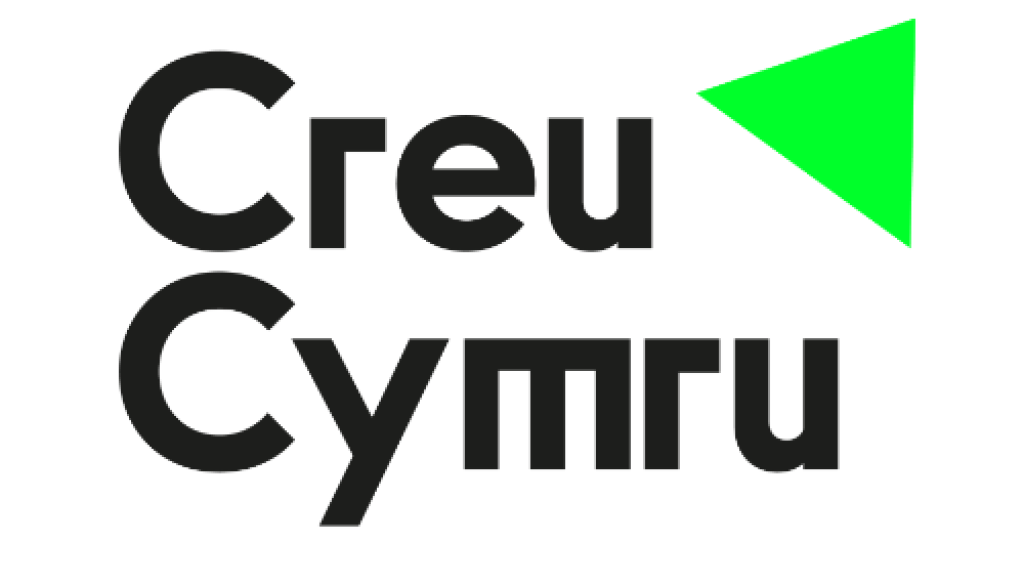
Creu Cymru expresses its deep concern at the proposed 10% cut to the Arts Council of Wales announced by Welsh Government, and urgently calls for an end to the downward trend in public investment for culture in Wales.
The Creative Industries in Wales provides 80,000 jobs, (the music, performing and visual arts sector employs more than 7,000 people across Wales), and has an annual turnover of about £4 billion. They make a vital contribution to our health and well-being, national economy, and international reputation. The return on investment in the cultural sector, in terms of economic, social, and international benefits, far outweigh the current levels of expenditure.
It makes no economic sense to reduce investment in a sector which generates £1.40 additional spend for local economies for every £1 spent on a theatre ticket, adding up to £1.94bn per annum of extra value added to local economies by theatre audiences.
Compared with the start of the decade, Government funding of the Arts Council of Wales in 2020 was 21% lower than investment in 2009/10.
We urge Welsh Government to honour their commitment to culture and the Well-being of Future Generations (Wales) Act and follow up their exemplary support of the sector in response to the impact of COVID-19.
This is a particularly difficult moment for both freelancers (which can make-up up to 70% of our workforce), and for organisations: with ongoing recovery from the pandemic, cost of living, energy costs, long-term underfunding (including significant reduction from local authorities over the last decade), and the fallout from the Investment Review alongside a crumbling infrastructure: all contributing to a very challenging landscape.
Wales Millennium Centre are looking at reduced opening times and a cut in their non-commercial activity.
Michelle Perez, General Manager from Theatr Iolo said “A 10% cut would have a dramatic impact on Theatr Iolo, it would equate to one redundancy of a staff member from our already small core team of 5 people. Or it would mean at least one of our studio touring shows, would have to be cut each year. This reduction in our programme would mean reaching less and less children across the whole of Wales, with live theatre and cultural activities including the children who live in areas of significantly less investment or who are disadvantaged in some way.
“Every child has the right to rest and leisure, to engage in play and recreational activities appropriate to the age of the child and to participate feely in cultural life and the arts.”
As Article 31 in the UN Convention on the Rights of the Child states above, Theatr Iolo believes that ALL children should have access to stimulating, surprising and meaningful theatre experiences. Theatr Iolo makes work that is a celebration and exploration of what it is to be human and we fiercely believe that young people should have access and be part of this dialogue.
By reducing our financial grant to Theatr Iolo, it will have a detrimental impact on the organisation, making it unable to deliver our plans and thus helping us to achieve the Rights of the Child.”
David Wilson, Director of Aberystwyth Arts Centre said “Following a funding standstill outcome from the investment review we were already doing all we can to mitigate the impact of the resultant real terms cuts the news of this further cut is increasingly disheartening for Aberystwyth Arts Centre and for cultural life in mid-Wales. If we receive a reduction of (10%), it will take us back to the level of financial support we had in (2007).
Our work will be instantly more challenging, and especially so given our context, as it immediately impacts our current financial year ending in July.
Straight away this is likely to mean that we can no longer afford to maintain our provision, engagement and reach, and specifically it could mean:
- Removal of support to community groups, young, older and vulnerable people, artists and creative companies
- Restrictions to our opening times with shorter weeks and closure periods
- Cancellation of productions currently under consideration
- Ticket prices rise, undermining our efforts to make our provision accessible to families and disadvantaged/vulnerable communities
We will have an extremely limited ability however to realise savings within the year so larger savings and more intrusive interventions are likely needed from next Summer, and particularly if the funding level remains static.
At a time where we all experience the cost-of-living crisis we feel that access to and involvement in the arts; music, dance, theatre, film, painting, pottery, photography and creative learning are essential and needed even more, so these (re)actions beginning now would be unwillingly considered and in our opinion unwelcome by the people of Wales as we are key supporter of the local, regional and national artistic ecology”.
Geinor Styles, Artistic Director of Theatr na nÓg states:
“Our original funding offer was already a cut in real terms, a 10% cut to our funding offer is a 40% cut in reality and will have a devastating impact to our work. Losing another c.£32K means we would need to cut our provision to young people, our Welsh language work or our main scale touring— As a small, producing company we don’t have the resources in-house to go after further funding; if we can’t find the money then the Board and Senior Management will have to make some difficult decisions as to how we continue.
In a country that values the arts and the contribution it makes for future generations, on its well-being and the Welsh language, further cuts will be detrimental to achieving its aims.
Roedd ein cynnig ariannu gwreiddiol eisoes yn doriad mewn termau go iawn, mae toriad o 10% i’n cynnig ariannu yn doriad o 40% mewn gwirionedd a bydd yn cael effaith ddinistriol ar ein gwaith. Byddai colli tua £32K arall yn golygu y byddai angen cwtogi ar ein darpariaeth i bobl ifanc, ein cynhyrchiadau Cymraeg neu ein cynhyrchiadau teithiol. Fel cwmni cynhyrchu bach nid oes gennym yr adnoddau mewnol i fynd ar ôl arian ychwanegol; os na allwn ddod o hyd i’r arian yna bydd yn rhaid i’r Bwrdd a’r Uwch Reolwyr wneud penderfyniadau anodd ynglŷn â sut i barhau. Mewn gwlad sy’n gwerthfawrogi’r celfyddydau a’r cyfraniad y mae’n ei wneud i genedlaethau’r dyfodol, at ei llesiant a’r iaith Gymraeg. bydd toriadau pellach yn niweidiol i gyflawni ei nodau”.
Across the sector we could see anything from 3-10% job losses from salaried staff and a knock-on effect to the freelance workforce.
The culture sector has been in a steady decline for over a decade due to the erosion caused by standstill fund. By taking decisive action on culture spend and investment in its budget for 2024-25, Welsh Government would ensure its long-term recovery, secure Wales’s place as a cultural world leader and unlock enormous benefits for Wales’s society and economy.
The Welsh Government has an annual budget of 21 billion. The Arts Council of Wales received £33.3 million in 2023/24, a 1.5% decrease from the previous year. Cultural spending as a proportion of the Welsh Government budget represents less than 0.15% of total overall expenditure – one of the lowest in Europe, where the average is 1.5% with some reaching 2.5%.
We encourage the Welsh Government to continue to collaborate with UK government in securing cultural tax reliefs, and to support the sector in making the case for their permanent extension.
We urge the Welsh Government to recognise the value and impacts of the culture sector, that it has a workforce that has been experiencing consistently low and fixed pay levels and a freelance workforce that is particularly precarious and vulnerable, and to work collaboratively to deliver solutions to secure its sustainable future such as a commitment to no further cuts and to work with the sector to find solutions that meet the needs of the sector whilst providing meaningful experiences and changing the lives of the people in Wales.
